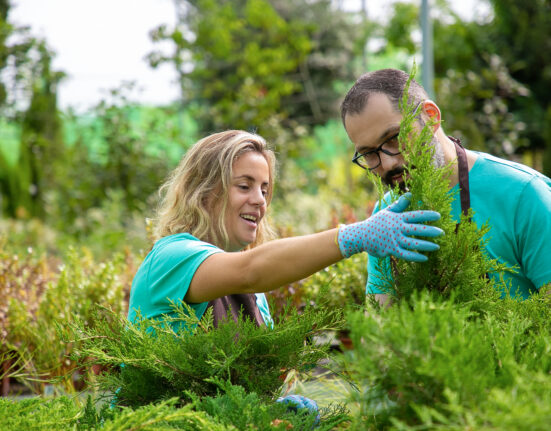Embrace the 5 R’s
Before delving into specific strategies, it’s essential to understand the concept of the “5 R’s” – Refuse, Reduce, Reuse, Recycle, and Rot. These principles guide us to make responsible choices in managing waste and plastic use.
Refuse:
The first step is to refuse single-use plastic items, such as straws and plastic bags. Be conscious of unnecessary packaging and choose alternatives.
Reduce:
Reduce consumption by only buying what you need, and opt for products with minimal packaging.
Reuse:
Whenever possible, reuse items like containers, bags, and clothing. Repurposing is a key element in minimizing waste.
Recycle:
Understand your local recycling programs and ensure you recycle materials correctly.
Rot:
Composting organic waste can significantly reduce landfill contributions and create nutrient-rich soil.
Opt for Reusable Bags and Containers
Single-use plastic bags are a major contributor to plastic waste. Invest in reusable shopping bags and containers for your groceries and daily needs. These options are not only eco-friendly but also more durable and cost-effective in the long run.
Reduce Food Waste
Food waste is a significant contributor to household waste. Plan your meals carefully, store food properly, and make an effort to use leftovers creatively. Composting is an excellent way to manage food scraps that cannot be consumed.
Choose Sustainable Packaging
When shopping, opt for products with sustainable and minimal packaging. Many brands are now committed to reducing packaging waste, so choose those that align with your values.
Avoid Single-Use Plastics
Say no to single-use plastic items like straws, cutlery, and cups. Carry your own reusable alternatives, such as stainless steel or bamboo straws, and keep a set of reusable utensils on hand.
Buy in Bulk
Buying in bulk not only reduces packaging waste but also often saves money. Look for stores that offer bulk bins for items like grains, nuts, and cleaning supplies.
Practice Sustainable Food Storage
Invest in reusable food storage containers made from glass or stainless steel. Avoid using plastic wrap and opt for silicone food covers or beeswax wraps to preserve freshness.
Participate in a Community Composting Program
If you don’t have the space for composting at home, inquire about community composting programs in your area. This enables you to dispose of organic waste responsibly.
Repair Rather Than Replace
When household items break or wear out, explore the possibility of repairing them instead of immediately replacing them. Repair cafes and online tutorials can help you extend the life of many products.
Choose Cloth Over Paper
Opt for cloth napkins and towels over disposable paper products. Not only are they more eco-friendly, but they can also add a touch of elegance to your dining and kitchen areas.
Invest in Reusable Water Bottles
Single-use plastic water bottles are a significant source of plastic waste. Invest in a reusable water bottle made from stainless steel or glass and carry it with you to stay hydrated on the go.
Reduce Junk Mail
Unwanted mail contributes to paper waste. Contact organizations to remove your name from their mailing lists and switch to digital communication whenever possible.
Be Mindful of Electronics
Electronic waste is a growing concern. Extend the life of your devices through maintenance and updates, and dispose of them properly at e-waste recycling centers when necessary.
Use Eco-Friendly Cleaning Products
Many household cleaning products contain harmful chemicals and come in plastic containers. Opt for eco-friendly alternatives or make your own cleaning products using simple ingredients like vinegar and baking soda.
Go Paperless
Minimize paper usage by switching to paperless billing and communication with service providers, banks, and other institutions. Use digital platforms for reading magazines, newspapers, and books.
Sustainable Transportation
Reduce your carbon footprint by using sustainable transportation methods such as biking, walking, or using public transportation whenever possible. Fewer car trips mean less plastic waste from disposable cups, cutlery, and takeout containers.
Reduce Single-Use Beauty Products
Consider alternatives to single-use beauty products, such as reusable cotton pads and bamboo toothbrushes. Additionally, choose cosmetics and personal care items with minimal packaging.
Mindful Gift-Giving
When giving gifts, choose experiences or durable, reusable items instead of disposable ones. Encourage your loved ones to embrace a sustainable lifestyle.
Be a Responsible Shopper
Support brands and companies that prioritize sustainability and environmentally friendly practices. Consider the materials and packaging of products before making a purchase.
Educate and Advocate
Spread awareness about the importance of reducing household waste and plastic use. Encourage your friends, family, and community to adopt sustainable practices. Advocate for stricter regulations on plastic usage in your area.
DIY and Upcycling
Get creative with do-it-yourself (DIY) projects and upcycling. Instead of buying new items, try refurbishing or repurposing old ones. This not only reduces waste but also fosters creativity.
Assess Your Recycling Habits
Familiarize yourself with your local recycling program and ensure you’re recycling correctly. It’s essential to understand what can and cannot be recycled in your area.
Reduce Water Waste
Minimize water waste to reduce the energy and resources required for water treatment. Fix leaky faucets, use a broom instead of a hose for outdoor cleaning, and install water-saving appliances.
Responsible Disposal of Hazardous Materials
Dispose of hazardous materials like batteries and electronics responsibly. These items can contain harmful chemicals and should not be thrown in regular trash.
Support Sustainable Packaging Initiatives
Advocate for businesses to adopt sustainable packaging practices and support those that already do. Many companies are working to reduce plastic waste through innovative packaging solutions.
Conclusion
Minimizing household waste and plastic usage isn’t just about individual actions; it’s a collective responsibility to protect our planet for future generations. The strategies outlined in this article are practical, sustainable, and effective ways to make a positive impact on the environment. By adopting these strategies, you can significantly reduce your carbon footprint and contribute to a cleaner, greener world. Remember, small changes in your daily routine can lead to significant improvements in our environment. Start today and be part of the solution to the global waste and plastic crisis.















Leave feedback about this